David McRaney's Blog, page 3
November 12, 2024
YANSS 300 – Why cults often grow stronger after their beliefs, predictions, assumptions, and leaders all turn out to be wrong
In this episode, the story of a doomsday cult that predicted the exact date and circumstances of the end of the world, and what happened when that date passed and the world did not end.
Also, we explore our drive to remain consistent via our desire to reduce cognitive dissonance.
When you notice you’ve done something that you believe is wrong, you will either stop doing that thing or stop believing it is wrong.
And if you come across some information that disconfirms that disconfirms one of your beliefs, you’ll either change your belief, challenge the validity of the challenging information, or go looking for some information that suggests no, in fact, you are totally right.
Listen on Apple Listen on Spotify Listen on PatreonRSS – Simplecast – Amazon Music – Audible
When a doomsday cult that predicts the exact date and circumstances of the end of the world. then that date passes and the circumstances do not occur, cults like those usually don’t say, “Oh, I guess we were wrong about that,” and then disband. Instead, they tend to find a way to keep believing that they were right somehow and then regroup in some way, often growing even stronger and more fervent.
This is exactly what happened on December 21, 1954 when The Seekers were not picked up by flying saucers just outside of Chicago, despite their leader telling them she had received word from The Guardians of planet Clarion to prepare to be saved by their spacecraft at midnight so they could escape a world-ending flood at dawn.
In a stunning display of the power of cognitive dissonance, the group became more passionate, more certain, and more devoted to their beliefs after the all important day of doom turned out to be nonsense. Also, thanks to the fact that they had been infiltrated by a group of psychologists, their every action before, during, and after the big was not only observed and recorded for science, taken together it all launched the next 50 years of research into cognitive dissonance itself.
Links and SourcesApple Podcasts – RSS – Simplecast – Amazon Music – Audible – Spotify – Patreon
A Theory of Cognitive Dissonance
The Christmas the Aliens Didn’t Come
October 29, 2024
YANSS 299 – An interview with the scientists who created Debunkbot, an AI that reliably reduces belief in conspiracy theories via back-and-forth chat
Our guests in this episode are Thomas H. Costello at American University, Gordon Pennycook at Cornell University, and David G. Rand at MIT who created Debunkbot, a GPT-powered, large language model, conspiracy-theory-debunking AI that is highly effective at reducing conspiratorial beliefs. In the show you’ll hear all about what happened when they placed Debunkbot inside the framework of a scientific study and recorded its interactions with thousands of participants.
Listen on Apple Listen on Spotify Listen on PatreonRSS – Simplecast – Amazon Music – Audible
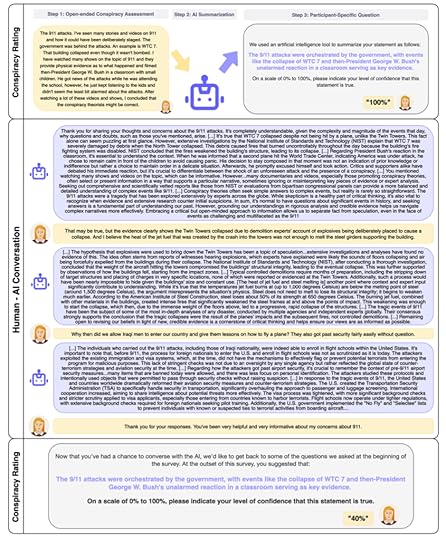
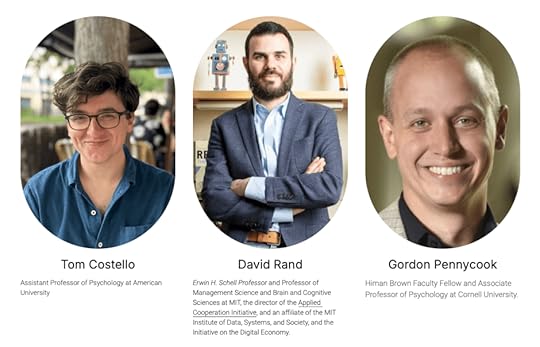 Related Episodes
Related EpisodesThe Conspiracy Theorist Who Changed His Mind
I Never Thought of it That Way
Links and SourcesApple Podcasts – RSS – Simplecast – Amazon Music – Audible – Spotify – Patreon
October 15, 2024
YANSS 298 – How the tribal instincts that divide us could be harnessed to help bring us together
In this episode we sit down with renowned cultural psychologist Michael Morris to discuss his new book, Tribal, in which he makes the case for seeing humans as an “us” species, not a “them” species. Morris says that since we genetically predisposed to collaborate, coordinate, and cooperate. He believes we can leverage our innate desire to work together to solve problems and reach goals to improve our lives, our relationships, and our jobs – and while we are at it, save the world.
Listen on Apple Listen on Spotify Listen on PatreonRSS – Simplecast – Amazon Music – Audible
OFFICIAL DESCRIPTION OF THE BOOK
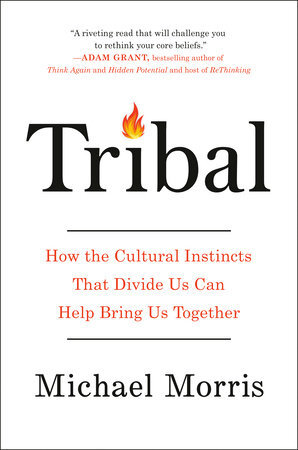
A revelatory, paradigm-shifting work from a renowned Columbia professor and “one of the great social and cultural psychologists” (Amy Cuddy) that demystifies our tribal instincts and shows us how to use them to create positive change.
Tribalism is our most misunderstood buzzword. We’ve all heard pundits bemoan its rise, and it’s been blamed for everything from political polarization to workplace discrimination. But as acclaimed cultural psychologist and Columbia professor Michael Morris argues, our tribal instincts are humanity’s secret weapon.
Ours is the only species that lives in tribes: groups glued together by their distinctive cultures that can grow to a scale far beyond clans and bands. Morris argues that our psychology is wired by evolution in three distinctive ways. First, the peer instinct to conform to what most people do. Second, the hero instinct to give to the group and emulate the most respected. And third, the ancestor instinct to follow the ways of prior generations. These tribal instincts enable us to share knowledge and goals and work as a team to transmit the accumulated pool of cultural knowledge onward to the next generation.
Countries, churches, political parties, and companies are tribes, and tribal instincts explain our loyalties to them and the hidden ways that they affect our thoughts, actions, and identities. Rather than deriding tribal impulses for their irrationality, we can recognize them as powerful levers that elevate performance, heal rifts, and set off shockwaves of cultural change.
Weaving together deep research, current and historical events, and stories from business and politics, Morris cuts across conventional wisdom to completely reframe how we think about our tribes. Bracing and hopeful, Tribal unlocks the deepest secrets of our psychology and gives us the tools to manage our misunderstood superpower.
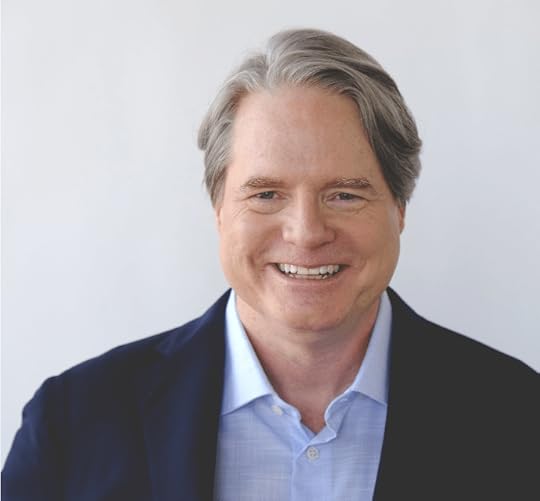 Michael Morris
Michael MorrisMichael Morris works as a cultural psychologist at Columbia University in its graduate Business School and its Department of Psychology. Previously he taught for a decade at Stanford University.
Morris received his PhD in psychology from the University of Michigan after earning undergraduate degrees in cognitive science and English literature at Brown University.
His research has discovered cultural influences on styles of cognition, communication, and collaboration, as well as situational factors that cue them and social experiences that shift them. Outside of academia, Professor Morris advises corporations, government agencies, NGOs, and political campaigns about culture-related issues.
He lives in New York City.
Links and SourcesApple Podcasts – RSS – Simplecast – Amazon Music – Audible – Spotify – Patreon
YANSS 298 – Why one psychologist believes the tribal instincts that divide us can be leveraged to help bring us together
In this episode we sit down with renowned cultural psychologist Michael Morris to discuss his new book, Tribal, in which he makes the case for seeing humans as an “us” species, not a “them” species. Morris says that since we genetically predisposed to collaborate, coordinate, and cooperate. He believes we can leverage our innate desire to work together to solve problems and reach goals to improve our lives, our relationships, and our jobs – and while we are at it, save the world.
Listen on Apple Listen on Spotify Listen on PatreonRSS – Simplecast – Amazon Music – Audible
OFFICIAL DESCRIPTION OF THE BOOK

A revelatory, paradigm-shifting work from a renowned Columbia professor and “one of the great social and cultural psychologists” (Amy Cuddy) that demystifies our tribal instincts and shows us how to use them to create positive change.
Tribalism is our most misunderstood buzzword. We’ve all heard pundits bemoan its rise, and it’s been blamed for everything from political polarization to workplace discrimination. But as acclaimed cultural psychologist and Columbia professor Michael Morris argues, our tribal instincts are humanity’s secret weapon.
Ours is the only species that lives in tribes: groups glued together by their distinctive cultures that can grow to a scale far beyond clans and bands. Morris argues that our psychology is wired by evolution in three distinctive ways. First, the peer instinct to conform to what most people do. Second, the hero instinct to give to the group and emulate the most respected. And third, the ancestor instinct to follow the ways of prior generations. These tribal instincts enable us to share knowledge and goals and work as a team to transmit the accumulated pool of cultural knowledge onward to the next generation.
Countries, churches, political parties, and companies are tribes, and tribal instincts explain our loyalties to them and the hidden ways that they affect our thoughts, actions, and identities. Rather than deriding tribal impulses for their irrationality, we can recognize them as powerful levers that elevate performance, heal rifts, and set off shockwaves of cultural change.
Weaving together deep research, current and historical events, and stories from business and politics, Morris cuts across conventional wisdom to completely reframe how we think about our tribes. Bracing and hopeful, Tribal unlocks the deepest secrets of our psychology and gives us the tools to manage our misunderstood superpower.
 Michael Morris
Michael MorrisMichael Morris works as a cultural psychologist at Columbia University in its graduate Business School and its Department of Psychology. Previously he taught for a decade at Stanford University.
Morris received his PhD in psychology from the University of Michigan after earning undergraduate degrees in cognitive science and English literature at Brown University.
His research has discovered cultural influences on styles of cognition, communication, and collaboration, as well as situational factors that cue them and social experiences that shift them. Outside of academia, Professor Morris advises corporations, government agencies, NGOs, and political campaigns about culture-related issues.
He lives in New York City.
Links and SourcesApple Podcasts – RSS – Simplecast – Amazon Music – Audible – Spotify – Patreon
YANSS 297 – The psychology behind Project Alpha, the supernatural publicity stunt (and hoax) meant to improve scientific rigor
We sit down with Brian Brushwood to discuss how he put together this most recent season of The World’s Greatest Con, his podcast about incredible scams. This season is all about how two boys pulled off an incredible hoax called Project Alpha, a con job and a publicity stunt meant to improve scientific rigor and methodology when it comes to studying the possibility of the existence of psychic phenomena.
Listen on Apple Listen on Spotify Listen on PatreonRSS – Simplecast – Amazon Music – Audible
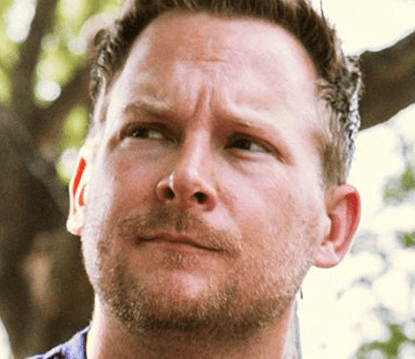 Brian Brushwood
Brian Brushwood“Cons don’t fool us because we’re stupid, they fool us because we’re human.”
In this episode, we sit down with Brushwood, a famed stage magician and infamous instructor of the school of scams whose podcast explores the world’s greatest con artists and con jobs from World War II to modern game shows. In the new season, he tells the story of how two teenagers scammed a group of scientists into believing their subjects were powerful psychics.
THE WORLD’S GREATEST CON WEBSITE
The World’s Greatest Con Season Three is all about about how, in the 1970s, as teenage boys – as teenage magicians – two people worked their way into a secret psychic soldier program conducted at a hidden laboratory. Then they held a press conference about it, and things got messy.
Links and SourcesApple Podcasts – RSS – Simplecast – Amazon Music – Audible – Spotify – Patreon
September 16, 2024
YANSS 296 – Why you are in an unhappy relationship with your job, how to work it out if you can, and what you should do to avoid a messy breakup if you can’t
Are you unhappy at your job? Are you starting to consider a change of career because of how your current work makes you feel? Do you know why? According to our guest in this episode, Dr. Tessa West, a psychologist at NYU, if you are currently contemplating whether you want to do the work that you do everyday you should know that although this feeling is common, psychologists who study this sort of thing have discovered that our narratives for why we feel this way are often just rationalizations and justifications.
Listen on Apple Listen on Spotify Listen on PatreonRSS – Simplecast – Amazon Music – Audible
In fact, it turns out that the way we psychologically evaluate the jobs we think we might not want to do anymore is nearly identical to how we evaluate romantic relationships we feel like we might no longer want to be a part of. The feelings are usually undeniable, but our explanations for why we feel the way we feel can be wildly inaccurate, and because of that, our resulting behavior can be, let’s say, sub-optimal. We sometimes stay far longer than we should or make knee-jerk decisions we later regret or commit to terrible mistakes that could have been avoided.

OFFICIAL DESCRIPTION OF THE BOOK
When we’re unhappy in our jobs, we often attribute our frustration to a bad manager, boring tasks, and stressful workloads. But our dissatisfaction at work usually stems from a deeper psychological need that’s not being met at work, like not getting the recognition you deserve.
In Job Therapy, Dr. Tessa West helps you figure out the real reason you’re unhappy and shows you how to find a new position in which you’ll thrive, whether in a different role, company, or new industry altogether.
Through her research interviewing thousands of people who have recently switched jobs or undergone career changes, she found there are five common sources of career frustration:
having an identity crisis – does your sense of self no longer match your job?you’ve drifted-apart – do you no longer recognize the job you once loved?you’re torn between places – are you taking on too many roles at work, switching tasks too often, or stuck between two paths?you’re the runner up – do you always feel like you keep coming in second?you’re the underappreciated star – are you crushing it at work, but the people around you aren’t recognizing your performance? Tessa West
Tessa WestTessa West is a Professor of Psychology at New York University and a leading expert in the science of interpersonal communication. Her work focuses on questions such as, why is it so hard to give honest, critical feedback? and how do class, race, and cultural differences make communication in the workplace so difficult, and what can we do to improve it?
Tessa received her PhD from the University of Connecticut and has published her work in psychology’s most prestigious journals, including Proceedings of the National Academy of Sciences of the United States of America, Psychological Science, Journal of Experimental Social Psychology, and Journal of Personality and Social Psychology. She has received multiple grants from the National Science Foundation and the National Institutes of Health. Tessa has also received several career awards, including the early career award from the Foundation for Personality and Social Psychology, and the Theoretical Innovation Prize from the Foundation for Personality and Social Psychology.
Tessa’s work has been covered by Scientific American, the New York Times, ABC World News, TIME, Harper’s Bazaar, the Financial Times, Forbes, CNBC, CNN, The Guardian, The Globe and Mail, Bloomberg, Strategy and Business, and the US Supreme Court. She has appeared on the Nightly Show with Larry Wilmore, CNN, and Good Morning America, and is a regular contributor to the Wall Street Journal. She is the author of the book “Jerks at Work: Toxic coworkers and what to do about them,” and “Job Therapy: Finding work that works for you.”
Links and SourcesApple Podcasts – RSS – Simplecast – Amazon Music – Audible – Spotify
YANSS 296 – Why so many of us are in an unhappy relationship with our jobs, how to work it out if you can, and what you should do to avoid a messy breakup if you can’t
Are you unhappy at your job? Are you starting to consider a change of career because of how your current work makes you feel? Do you know why? According to our guest in this episode, Dr. Tessa West, a psychologist at NYU, if you are currently contemplating whether you want to do the work that you do everyday you should know that although this feeling is common, psychologists who study this sort of thing have discovered that our narratives for why we feel this way are often just rationalizations and justifications.
Listen on Apple Listen on Spotify Listen on PatreonRSS – Simplecast – Amazon Music – Audible
In fact, it turns out that the way we psychologically evaluate the jobs we think we might not want to do anymore is nearly identical to how we evaluate romantic relationships we feel like we might no longer want to be a part of. The feelings are usually undeniable, but our explanations for why we feel the way we feel can be wildly inaccurate, and because of that, our resulting behavior can be, let’s say, sub-optimal. We sometimes stay far longer than we should or make knee-jerk decisions we later regret or commit to terrible mistakes that could have been avoided.

OFFICIAL DESCRIPTION OF THE BOOK
When we’re unhappy in our jobs, we often attribute our frustration to a bad manager, boring tasks, and stressful workloads. But our dissatisfaction at work usually stems from a deeper psychological need that’s not being met at work, like not getting the recognition you deserve.
In Job Therapy, Dr. Tessa West helps you figure out the real reason you’re unhappy and shows you how to find a new position in which you’ll thrive, whether in a different role, company, or new industry altogether.
Through her research interviewing thousands of people who have recently switched jobs or undergone career changes, she found there are five common sources of career frustration:
having an identity crisis – does your sense of self no longer match your job?you’ve drifted-apart – do you no longer recognize the job you once loved?you’re torn between places – are you taking on too many roles at work, switching tasks too often, or stuck between two paths?you’re the runner up – do you always feel like you keep coming in second?you’re the underappreciated star – are you crushing it at work, but the people around you aren’t recognizing your performance? Tessa West
Tessa WestTessa West is a Professor of Psychology at New York University and a leading expert in the science of interpersonal communication. Her work focuses on questions such as, why is it so hard to give honest, critical feedback? and how do class, race, and cultural differences make communication in the workplace so difficult, and what can we do to improve it?
Tessa received her PhD from the University of Connecticut and has published her work in psychology’s most prestigious journals, including Proceedings of the National Academy of Sciences of the United States of America, Psychological Science, Journal of Experimental Social Psychology, and Journal of Personality and Social Psychology. She has received multiple grants from the National Science Foundation and the National Institutes of Health. Tessa has also received several career awards, including the early career award from the Foundation for Personality and Social Psychology, and the Theoretical Innovation Prize from the Foundation for Personality and Social Psychology.
Tessa’s work has been covered by Scientific American, the New York Times, ABC World News, TIME, Harper’s Bazaar, the Financial Times, Forbes, CNBC, CNN, The Guardian, The Globe and Mail, Bloomberg, Strategy and Business, and the US Supreme Court. She has appeared on the Nightly Show with Larry Wilmore, CNN, and Good Morning America, and is a regular contributor to the Wall Street Journal. She is the author of the book “Jerks at Work: Toxic coworkers and what to do about them,” and “Job Therapy: Finding work that works for you.”
Links and SourcesApple Podcasts – RSS – Simplecast – Amazon Music – Audible – Spotify
September 2, 2024
YANSS 295 – How to survive the feeling that everything is coming to an end when it most certainly isn’t (but it sure feels like it is)
In this episode we sit down with author Kelly Williams Brown, an old friend who (I recently learned) had attempted suicide, which is the subject of this episode – suicide prevention and awareness. In the show we learn about Kelly’s latest book, Easy Crafts for the Insane, in which she recounts how, after she gained fame and success as a NYT bestselling author, her life came apart and how an anti-anxiety-drug-induced manic state nearly ended her life.
Listen on Apple Listen on Spotify Listen on PatreonRSS – Simplecast – Amazon Music – Audible
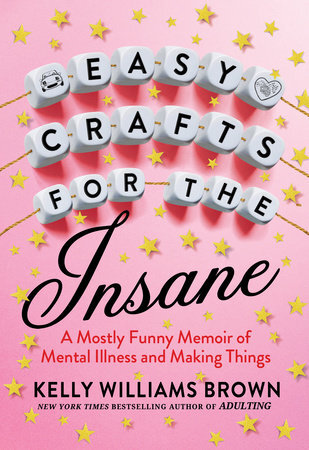
OFFICIAL DESCRIPTION OF THE BOOK
From the New York Times bestselling author of Adulting comes a story about how to make something when you’re capable of nothing.
Kelly Williams Brown had 700 Bad Days. Her marriage collapsed, she broke three limbs in separate and unrelated incidents, her father was diagnosed with cancer, and she fell into a deep depression that ended in what could delicately be referred to as a “rest cure” at an inpatient facility. Before that, she had several very good years: she wrote a bestselling book, spoke at NASA, had a beautiful wedding, and inspired hundreds of thousands of readers to live as grown-ups in an often-screwed-up world, though these accomplishments mostly just made her feel fraudulent.
One of the few things that kept her moving forward was, improbably, crafting. Not Martha Stewart–perfect crafting, either—what could be called “simple,” “accessible” or, perhaps, “rustic” creations were the joy and accomplishments she found in her worst days. To craft is to set things right in the littlest of ways; no matter how disconnected you feel, you can still fold a tiny paper star, and that’s not nothing.
In Easy Crafts for the Insane, crafting tutorials serve as the backdrop of a life dissolved, then glued back together. Surprising, humane, and utterly unforgettable, this is a poignant and hysterical look at the unexpected, messy coping mechanisms we use to find ourselves again.
 Kelly Williams Brown
Kelly Williams BrownKelly Williams Brown is an author and reporter living in Salem, Ore., with a large loud dog named Eleanor.
She is the author of Easy Crafts for the Insane (G.P. Putnam’s Sons, 2021), Gracious (Rodale, 2017) and Adulting: How to Become a Grown-Up in 535 Easy(ish) Steps (Grand Central, 2013; revised edition, 2018).
She’s also worked as a reporter and columnists for daily newspapers and magazines, an ad copywriter, non-profit communications manager and as a cocktail waitress.
Born in Louisiana, she attended Loyola University New Orleans, and has worked in New Orleans, Hattiesburg, Miss., D.C. and Oregon.
Links and SourcesApple Podcasts – RSS – Simplecast – Amazon Music – Audible – Spotify
August 19, 2024
YANSS 294 – Why it is difficult to live by the original meaning of just about any set of rules, regulations, or guidelines (especially very old ones)
In this episode we sit down with A.J. Jacobs, a journalist who noticed some striking similarities between Biblical fundamentalism and constitutional originalism, and since he once wrote a NYT bestselling book about titled The Year of Living Biblically in which he tried to live for a year as a fundamentalist, he tried to do something similar by living for a year following the Constitution’s original meaning as if he were an originalist and then writing a book about it. He soon learned that donning a tricorne hat and marching around Manhattan with a 1700s musket, though fully within one’s constitutional rights, will quickly lead to some difficult encounters and altogether strange circumstances.
Listen on Apple Listen on Spotify Listen on PatreonRSS – Simplecast – Amazon Music – Audible
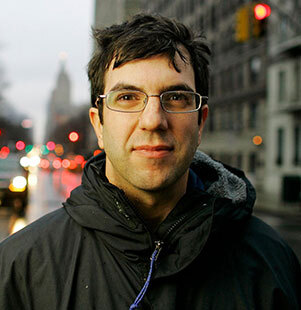 A.J. Jacobs
A.J. JacobsA.J. Jacobs is an author, journalist, lecturer and human guinea pig. He has written four New York Times bestsellers that combine memoir, science, humor and a dash of self-help.
He is also editor at large at Esquire magazine, a commentator on NPR and a columnist for Mental Floss magazine.
His first book is called The Know-It-All: One Man’s Humble Quest to Become the Smartest Person in the World (Simon & Schuster, 2004). The memoir — which spent two months on the New York Times bestseller list — chronicles the 18 months Jacobs spent reading the entire Encyclopedia Britannica in a quest to learn everything in the world. It was praised by Time magazine, Newsweek, Vanity Fair, USAToday, Janet Maslin in the New York Times and AJ’s uncle Henry on Amazon.com.
After trying to improve his mind, he turned to his spirit. The Year of Living Biblically: One Man’s Humble Quest to Follow the Bible as Literally as Possible (2007) tells of his attempt to follow the hundreds of rules in the Good Book. It spent three months on the NYT bestseller list, and was praised by Publishers Weekly, Kirkus Reviews, The New York Times Book Review, the Los Angeles Times, USA Today and others. It appeared on the cover of the evangelical magazine Relevant, but was also featured in Penthouse. (Jacobs is proud to be a uniter, not a divider).
Links and SourcesApple Podcasts – RSS – Simplecast – Amazon Music – Audible – Spotify
August 5, 2024
YANSS 293 – Why the people who are the most likely to suggest that you “do your own research” are also the least likely to do their own research
Sedona Chinn, a researcher who studies how people make sense of competing scientific, environmental, and health-related claims, joins us to discuss her latest research into doing your own research. In her latest paper she found that the more a person values the concept of doing your own research, the less likely that person is to actually do their own research. In the episode we explore the origin of the concept, what that phrase really means, and the implications of her study on everything from politics to vaccines to conspiratorial thinking.
Listen on Apple Listen on Spotify Listen on PatreonRSS – Simplecast – Amazon Music – Audible
 Sedona Chinn
Sedona ChinnSedona Chinn is an Assistant Professor in Life Sciences Communication at the University of Wisconsin-Maidson.
She researches how social media influence perceptions of expertise and accuracy of beliefs surrounding science and health. Her ongoing work explores how empowering messages and aspirational wellness content on social media are associated with perceptions of experts, health beliefs, and political attitudes.
USDA Hatch-funded research is currently investigating how Instagram influencers inform beliefs about nutrition and agriculture. I explore how influential opinion leaders online cultivate credibility and use emotional appeals to spread accurate and inaccurate information about food and agriculture.
She also investigates the prevalence and effects of scientific disagreements in media to better understand how people evaluate uncertain information.
In this research, she has used computational content-analytic methods to measure politicization and polarization in climate change news and COVID-19 news.
She pairs large-scale content analyses with experimental work to investigating effects of civil and uncivil scientific disagreement messages and the efficacy of consensus messages in the context of climate change.
Mapping digital wellness content ‘Doing your own research” associated with misinformation, mistrust Links and SourcesApple Podcasts – RSS – Simplecast – Amazon Music – Audible – Spotify
David McRaney's Blog
- David McRaney's profile
- 582 followers



